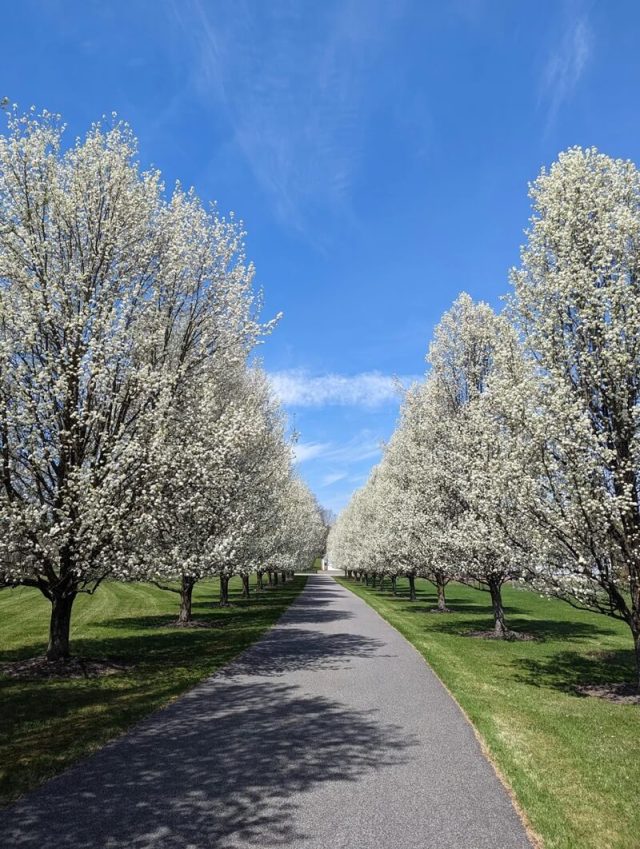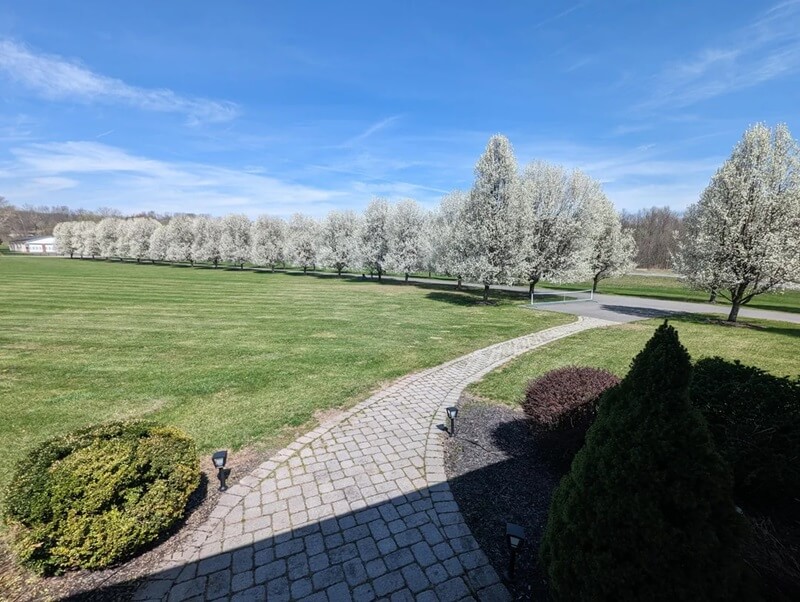After purchasing a home, a Reddit user thought they were sharing photos of a beautiful aspect of their new driveway. Unfortunately, they were in for a rude awakening.
The Redditor posted three pictures in the r/landscaping subreddit with the title "Pear trees? I've got a few." The user noted that their new home has "got 44 pear trees lining the driveway."


While the photos presented an aesthetically beautiful landscape, these Bradford pear trees present a problem to the environment because they are invasive species. Despite their pretty blossoms, Bradford pear trees have become a nuisance because they outcompete native trees and disrupt local ecosystems. They are also known for their less-than-pleasant smell when in bloom.
Commenters quickly pointed out that the user should be concerned about the trees.
"Ugh. That won't be that way for long," one user commented. "Bradford Pears are notoriously weak. Plus, they ARE listed as an invasive species."
Another user provided a detailed explanation for why these trees are so dangerous and added that the original poster could be facing a daunting removal process.
"It looks cool, it really does. However, if you look towards the edges of your property, you'll probably see even more Bradford pears. These are extremely invasive and many towns offer bounty programs to reduce their populations," the commenter stated.
"They offer zero to wildlife. They are weak trees. They don't live long when compared to other trees. Birds spread the fruits and then a new tree grows which crowds out native trees and shrubs. That's going to be an expensive remediation if you ever attempt it but it'll be worth it if you value wildlife," they continued.
As the commenter mentioned, some states incentivize the removal of Bradford pear trees. For example, if you're a North Carolina resident and remove one of them from your property, the state will actually reward you with a free native tree to plant in its place. You could receive up to five free native trees under the program, so you'd be able to get a beautiful replacement, such as a pawpaw, sycamore, American beech, or a variety of maple trees.
This is part of North Carolina's effort to rewild yards and support local biodiversity, and other areas dealing with the issues caused by invasive species could follow suit.
If you're interested in rewilding your yard, this guide will be helpful. Even partial lawn replacements — with clover, for example — can help bring the ecosystem back into balance and reduce the need for time-consuming and costly lawn maintenance.
Join our free newsletter for easy tips to save more, waste less, and help yourself while helping the planet.









